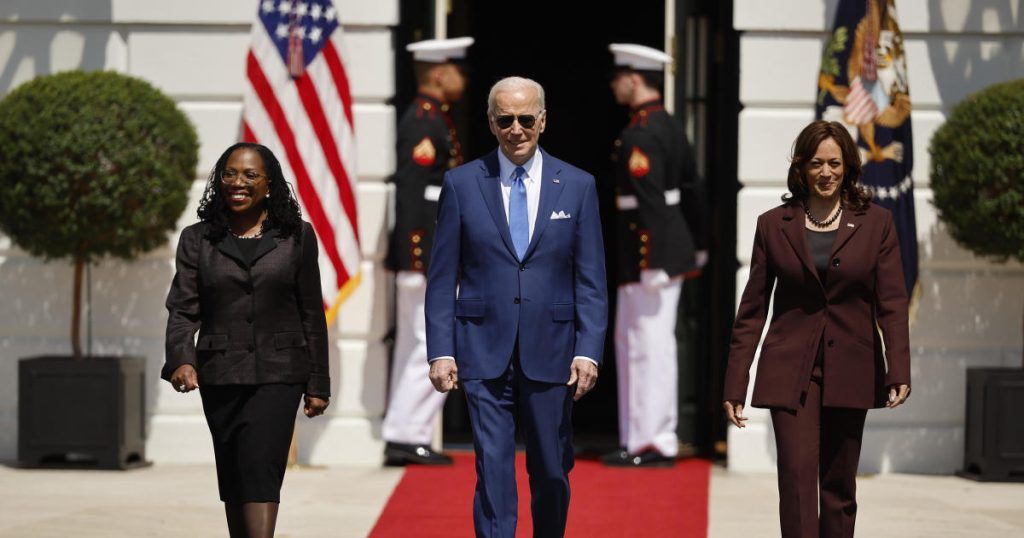President Biden is on track to surpass former President Donald Trump’s total number of judicial confirmations as he prepares to close out his four years in office. The federal bench appointments have gained importance, as courts handle significant disputes on issues like abortion, immigration, and the environment. Trump appointed 234 judges to Article III courts, which include the Supreme Court and other federal courts, leaving a lasting impact on the federal bench. Biden, a former chairman of the Senate Judiciary Committee, is nearing this number as the Senate continues to confirm judicial nominations.
With four months left in his presidency, Mr. Biden has had 212 of his judicial nominations approved by the Senate, including Justice Ketanji Brown Jackson’s confirmation to the Supreme Court. He has appointed 44 judges to appeals courts and 165 to district courts, with 29 nominees pending in the Senate. The White House has consulted with home-state senators on nominations, with some vacant seats from states with two Republican senators. While Mr. Biden may surpass Trump in total judicial appointments, he is not likely to match the former president’s number of appointments to the appeals courts before leaving office.
Trump focused on filling vacancies in the appeals courts, while Mr. Biden has emphasized diversifying the federal bench. He aims to ensure the judiciary reflects the diversity of the American people by naming judges with varying backgrounds. Mr. Biden set a record for the largest number of nominees to appeals courts who previously worked as public defenders, with more than 40% serving in this role. He has also appointed diverse judges, surpassing Obama’s record for the most Black judges named in one term. Senate Majority Leader Chuck Schumer has prioritized confirming more of Mr. Biden’s judicial nominees, but the slim margins in the Senate could present challenges.
The Republican-led Senate continued to confirm Trump’s judicial picks after he lost the 2020 election, breaking with the tradition of halting consideration of nominees after Election Day. This precedent may benefit Mr. Biden during a potential lame-duck session to confirm more judicial nominees. Beyond the total number of judicial nominations, Mr. Biden’s focus has been on appointing diverse judges to the federal bench who understand the power of the courts and their role within the justice system. While the Senate’s close margins may complicate confirmation efforts, Vice President Kamala Harris has cast tie-breaking votes for some candidates.
In conclusion, President Biden’s focus on appointing diverse judges to the federal bench reflects his goal of ensuring that the judiciary represents the diversity of the American people. While he may surpass former President Trump’s total number of judicial appointments, the Senate’s slim margins could pose challenges to confirming more nominees. The continued prioritization of judicial confirmations and the potential for a lame-duck session could impact the makeup of the federal judiciary in the coming months. Overall, Biden’s efforts to diversify the bench and appoint judges with varied professional backgrounds mark a significant shift in judicial selection priorities.















